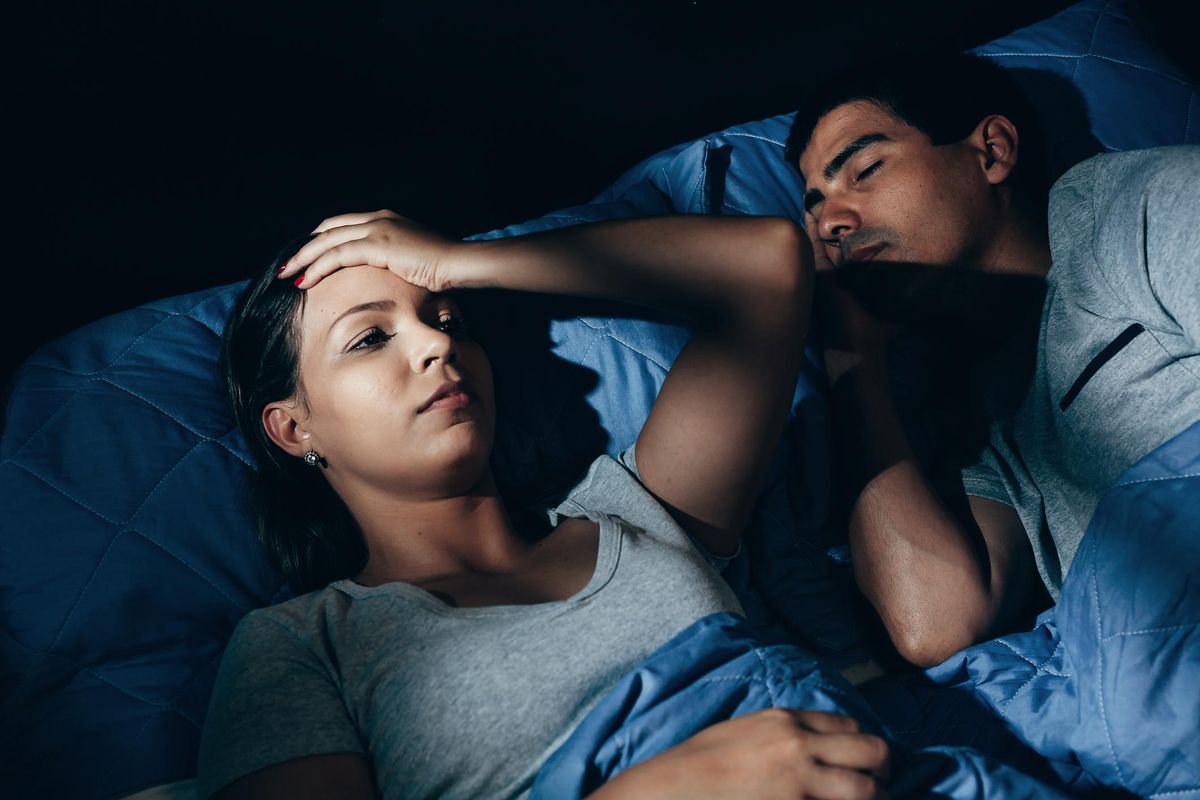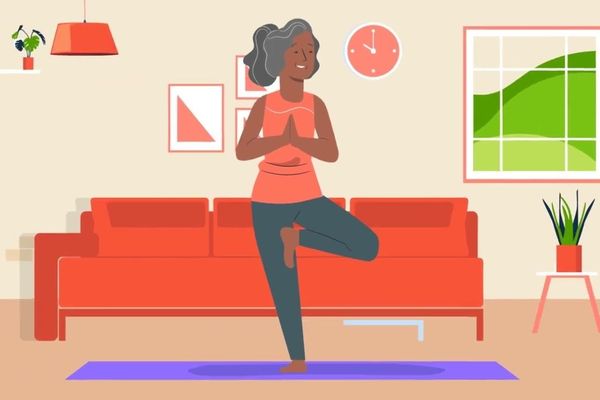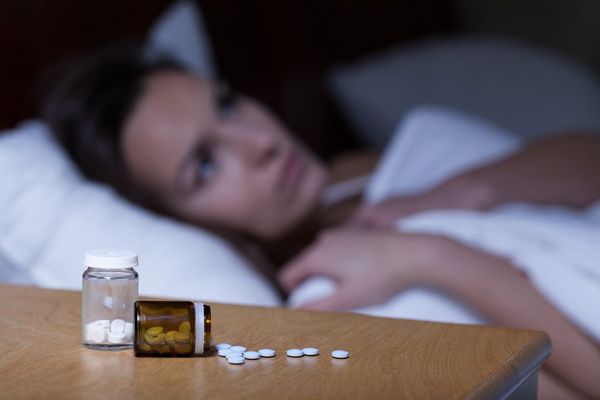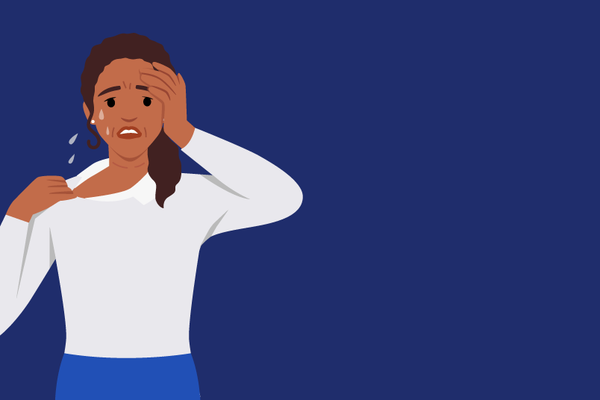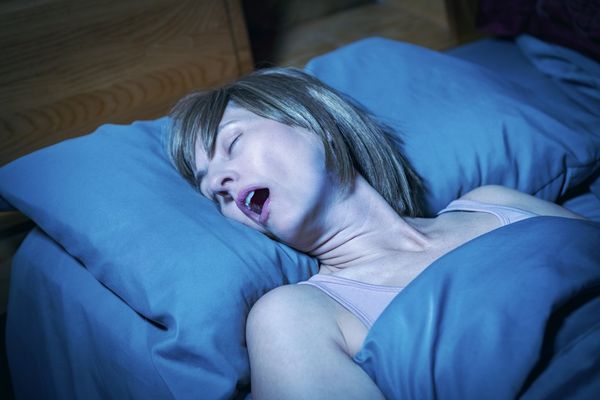Anyone can have trouble sleeping now and then, but if it happens a lot, you may have a sleep disorder called insomnia — and millions of Americans fall into this category.
We spoke with Dr. Smita Patel, an integrative neurologist and sleep medicine physician and member of HealthyWomen’s Women’s Health Advisory Council, to find out more about the condition that keeps so many of us awake at night.
What is the difference between just a few nights of bad sleep and a sleep disorder?
We can all have a bad night’s sleep on occasion, but patients with insomnia typically have recurring difficulty with falling asleep and/or staying asleep, or waking up too early. As a result, they may have trouble functioning during the day.
There are two main types of insomnia: acute and chronic. Acute insomnia is a short-term problem that lasts for days to weeks and usually occurs in response to a specific stressor, such as worrying about a presentation for work or school, or concerns about a sick family member. Chronic insomnia can last for months or more. It may be tied to a stressor, but it may also be related to an irregular sleep schedule, poor sleep hygiene, a loud or restless bed partner or persistent nightmares. It can also be tied to mental health disorders, underlying physical or neurological problems, other medical conditions, medications and even other sleep disorders.
What makes a person at risk for insomnia?
You are at greater risk of having insomnia if you are:
- Over age 60
- Female
- Pregnant
- Menstruating
- Perimenopausal or postmenopausal
- Someone with mental health disorders
- Someone with certain physical health conditions
- Stressed
- Someone who keeps an irregular schedule (resulting from shift work, traveling, or sleep-wake cycle disruptions, etc.)
Many chronic conditions, such as Type 2 diabetes and heart disease, as well as mental health disorders, such as depression and anxiety, are linked with insomnia. For example, many people with chronic insomnia have depression, and in turn, many people with depression have insomnia.
Additionally, changes that occur in your body because of aging, your environment, illnesses and using certain medications can all contribute to insomnia. The need to use the bathroom during the night can also be tied into medical problems and sleep disturbance.
How do diet and exercise affect sleep patterns?
Although there is no particular diet that has been proven to be best for sleep, some sources suggest that eating a variety of whole foods and having a low glycemic diet should be evaluated in improving sleep. Low glycemic foods are ones that take a long time for your body to digest and absorb, like kidney beans, vegetables and avocados. One study found that people who eat diets high in sugar and refined carbs can take longer to fall asleep and wake more frequently during the night. Eating unhealthy fats can also disturb the body’s normal sleep-wake cycle. Last but not least, it’s best to avoid spicy and acidic foods that can cause heartburn, which can affect your sleep.
Regular exercise and movement are very important for sleep as well. It’s important to move throughout the day, even if it’s just a short walk around your office, house or neighborhood.
How does insomnia affect hormones in women who are pregnant, trying to become pregnant or going through menopause?
Research has found that women who have long-term sleep issues may have a harder time getting pregnant. Women with insomnia during pregnancy are at greater risk for gestational diabetes, preterm birth, depressive symptoms, longer and more painful labor and cesarean sections (C-sections).
Sleep issues are more common for women with premenstrual syndrome (PMS) and during the perimenopausal and postmenopausal years because of the hormonal changes women experience at those times in their lives. In addition, decreased levels of estrogen during menopause have been associated with increased upper airway resistance, snoring and obstructive sleep apnea.
How do I know if I have insomnia vs. another sleep disorder?
If you experience sleep problems more than just occasionally, speak with your healthcare provider. They may offer an in-office assessment or refer you to a sleep specialist for further analysis, who may also refer you for a sleep study to determine whether you have insomnia or another type of sleep disorder.
What is the relationship between insomnia and other chronic conditions?
People with rheumatoid arthritis, osteoarthritis, fibromyalgia, hyperthyroidism, kidney disease and even reflux disease may be at increased risk of developing insomnia. There is also a link between insomnia and certain other chronic conditions, including Type 2 diabetes, heart disease, obesity, anxiety and depression. In fact, about 50% of patients with diabetes also report suffering from insomnia; one contributing factor may be related to pain from neuropathy.
People with cancer may also be at risk for insomnia caused by pain and other physical symptoms of the disease, side effects of treatment, emotional distress, and the effects of long hospital stays.
It’s worth noting that people with insomnia are at increased risk for development of dementia.
Are women more likely to get insomnia?
While anyone can have insomnia, women are more likely to experience insomnia as men. Women may start having trouble sleeping with the onset of PMS and during pregnancy, perimenopause and menopause. Also, sleep is often tied to mental health, and women are more likely than men to suffer from sleeping problems associated with conditions like depression, anxiety and stress.
Changes that occur in your body because of aging, your environment, illnesses and using certain medications can all contribute to insomnia. The need to use the bathroom during the night can also be tied into medical problems and sleep disturbance.
Do socioeconomic and racial disparities play a role in insomnia?
Sleep inequality is a widespread problem in America. There are pre-existing racial and ethnic disparities in sleep that appear to begin in early childhood and sleeping poorly can also worsen overall health and wellness. Racial and ethnic minorities in America already face complex societal disadvantages, making it even more difficult to find time for getting enough undisturbed sleep. Although there is no single explanation for the potential causes of America’s sleep gap, income levels may also play a large role.
At least one study found that Black people have shorter sleep duration and reported worse sleep quality. Non-Hispanic Black participants had more trouble falling and staying asleep than white adults. Hispanic/Latinx people were more likely to snore and gasp during sleep than white people.
What is considered not enough sleep for adults?
The term sleep deprivation refers to getting less than the needed amount of sleep, which ranges from seven to nine hours of sleep per night for adults. Poor sleep can take many forms. It can be caused by not sleeping for long enough periods, or being interrupted while sleeping. Both insufficient and interrupted sleep make it difficult to get through sleep stages in a normal, healthy way.
How can insomnia affect my daily activity?
Insomnia is not only a problem during the night but also can affect a person’s ability to function during the day. Aside from simply making you feel tired and perhaps irritable, a chronic lack of sleep can make it more difficult to concentrate during your waking hours and may dull your reflexes. This could make activities like driving more dangerous.
Women with chronic insomnia also have a greater risk for health problems. Research supports the findings that women who reported unhealthy sleep are at an elevated risk for heart disease, diabetes, weight gain, mood disorders, memory loss and shortened life span.
Is there treatment for insomnia?
Yes, there are many things you can do to help yourself fall asleep faster and stay asleep longer, which play an important role in how you feel the next day.
- Have a regular wake-up time that doesn’t vary by more than an hour, even on weekends.
- Get bright light in the morning as soon as you can.
- Exercise in the morning if possible and move throughout the day. If you exercise in the afternoon, try to do it at least four to six hours before bedtime.
- Limit caffeine consumption.
- Watch what you eat. Avoid high-carbohydrate meals and spicy and acidic foods.
- Avoid napping during the day. If you absolutely need a nap, take it before 3 p.m. and keep it to 20 minutes or less.
- Work on reducing stress.
- Make sure your bed is comfortable.
- Go to bed only when you are sleepy.
- Don’t read, watch TV, snack or listen to music in bed.
- Look for a therapist to help, who might consider cognitive therapy (CBT) for insomnia — CBT has multiple components and usually involves changing your sleep habits and thinking patterns to support better sleep. For example, instead of saying to yourself, “I’ll never get to sleep tonight,” you might tell yourself, “If I relax peacefully in bed, my body will take care of itself.”
- Speak to your healthcare provider about treatment approaches or medications that may be helpful in treating your insomnia.
This resource was created with support from Eisai.
- Why Are You Tossing and Turning at Night? - HealthyWomen ›
- Better Sleep, Better Health: A Guide to Understanding Insomnia ... ›
- Middle-Aged Women Struggling With Insomnia - HealthyWomen ›
- I Thought I Conquered Insomnia. Then I Didn’t Sleep for Four Days. - HealthyWomen ›
- 5 Things That Sabotage Your Sleep - HealthyWomen ›
- Treatment Options for Insomnia - HealthyWomen ›

